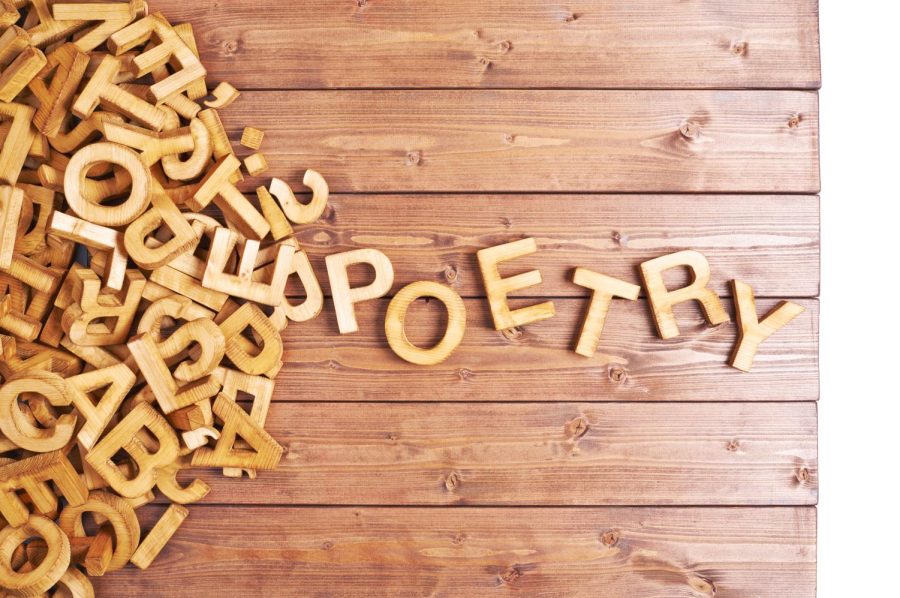National Poetry Month, what’s in it for you
Getty Images
Word poetry made with block wooden letters next to a pile of other letters over the wooden board surface composition. April is national poetry month. (Getty Images)
April 18, 2023
The month of April is dedicated to spreading awareness about the Earth, autism, stress and, less known, celebrating poetry. Whether it’s an ode, haiku, sonnet or any other style, April celebrates the history and wonder that comes from poetry all over the world.
The Academy of American Poets established April as National Poetry Month in 1996. The organization’s goal is to embrace poetry and poets everywhere and to recognize past and present works. Much like novels and letters, poems act as a form of communication. This form of the written word has the ability to connect human beings through the expression of thoughts, desires and ideas.
Though poetry is fun to read and write, it also has several health benefits. Poetry can act as a healing tool for people who struggle with anxiety, depression or stress. A study from the National Library of Medicine reported that “reading and writing poetry temporarily increases working memory capacity, which can increase an individual’s ability to proactively cope with stressful events.”
Poetry is about connection, and becoming immersed in a poet’s story allows for a reader to be transported somewhere else, if only for a few minutes.
Celebrating National Poetry Month is simple and doesn’t always require visiting a library or bookstore. A quick Google search can find anyone’s collections of poems. Poets.org is the Academy of American Poets’ website that contains hundreds of poems in its database. As the founder of this celebratory month, it seems only fair to utilize their collection.
Practicing writing poems is another way to celebrate national poetry month. It can’t be predicted what putting pen to paper will do, but trying to write poetry could awaken someone to a new interest or be a stress reliever. It has already been proven by the American Psychology Association that “suppressing negative, trauma-related thoughts compromises immune functioning, and that those who write visit the doctor less often.”
Lastly, visiting a local library or bookstore and browsing the poetry section(s) allows for an individual to become closer with poems.
“What I like about poetry books is that they talk about the narratives that really can’t get in the papers and they talk about them personally and nationally,” an NIU Board of Trustees member, research professor and poet Amy Newman said. “In addition to the poetry being beautiful or uplifting, the exploration that the writers are doing always teaches me stuff about the world.”
Newman shared some of her favorite poetry books that students should check out.
“Some of the books that I think that people should really be looking at right now are Jericho Brown’s ‘The Tradition,’ Lyrae Van Clief-Stefanon’s ‘Black Swan’ and Terrance Hayes’ ‘American Sonnets from My Past and Future Assassin’”
Newman describes all the poetry collections as “engrossing books about identity.” She also mentions books such as “Deaf Republic” by Ilya Kaminsky, “If They Come for Us” by Fatimah Asghar and “Borderlands” Javier Zamora. The collections are very lively and exciting, as they all approach the poetry differently.







